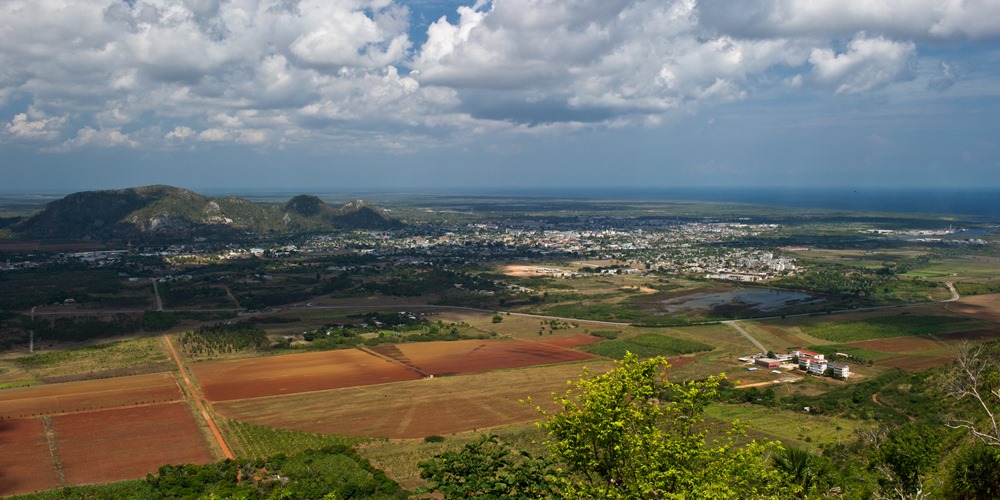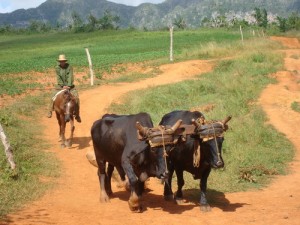DO YOU KNOW WHERE THE WORD “GUAJIRO” COMES FROM ?.
There are several versions and of course erroneous where the word “Guajiro” comes from; Some say that such a word arose when, during the Spanish-Cuban-American War (1898), American soldiers told the Cuban Liberation Army fighters: You are a hero, and that of those last two words (“hero of war”), Was derived “guajiro”.
The truth is that this word appears recorded in the almost reasoned provincial dictionary of Cuban voices and phrases, by Estaban Pichardo, which had its fourth edition, the last in its author’s lifetime, in 1875, more than twenty years before that war .
It has been said that guajiro is a word that comes from the Yucatecan, where it means “señor”. But Pichardo asserts that at the time he wrote his book he was hardly used in Yucatan, while in Cuba it was very common and very different from the meaning of this book because here, guajiro is synonymous with peasant. With this meaning is collected by the dictionary of the Academy of Language.
Fernando Ortiz, in his ‘New catauro de cubanismos’ (1974), also includes the word and José Juan Arrom grants him the extension that he deserves in his Antillean Lexicography Studies (1980). Arrom says that the voice was used in Santo Domingo, “although it seems to have fallen into disuse today”, and, in a restricted sense, in Guatemala, a country where, according to Martín Alonso, so-called Central Americans are called in general, and To Guatemalans not born in the capital of the country.
Arrom quotes Oviedo, who in his General and natural history of the Indies (1535) asserts that guajiro is not a term that originated from the Tierra Firme, but from a Caribbean origin, that is, from the West Indies. He also goes to the Apologetics of the history of the Indies by Father Las Casas, and recalls that among the Taínos there existed three words to signify the rank and dignity of the lords: Matunheri, which was equivalent to highness; Baharí, your lordship, and your Kashmir, your worship. And he adds that in his History of the Indies, Las Casas expresses that “guaxerí” means Lord. Rafael Calderón, in his grammar of the Goajira language, says that guashire is a gentleman and that guashiri means rich. Arrom concludes the Arahuaca origin of the word.
Arrom says that in the words of the Bahá’í, Baharí and Matunherí the phonemes xerí, harí and iri are vacillating spellings of the same morpheme that corresponds to the arahuaca voice “a-hatí”, that is, comrade, companion, compatriot. So if matun means generous, noble, matunheri would be noble, generous companion or compatriot. And that if bahü is home, Baharí means companion of house.
Bachiller and Morales claims that it is an article. Arrom does not agree with that scholar. For him gua or wa is pronominal prefix meaning us, our.
He states: “Guajiro, therefore, would be the same as our partner or compatriot, equivalent to the English word lord and the Spanish monseigneur, which is shown to be a term of treatment both familiar and respectful, of provenance Taína. ”
Ortiz remembers in his Catauro that there was a nation of goajiros, the Guajira, cattle town that was located between Venezuela and Colombia. But the word guajiro, they adopted it there of the Caribs. The illustrious polygraph states: “Our name of guajiros may have been taken from the enslaved Indians who were brought from Venezuela in the sixteenth century.”
Guajiro then did not arise in the days of the Spanish-Cuban-American War. Nor is it derived from English. Its origin is older and still more … it is ours.
SABES DE DONDE PROVIENE LA PALABRA “GUAJIRO”?.
Hay varias versiones y por supuesto erroneas de donde proviene la palabra “Guajiro”; unos dicen que tal palabra surgió cuando, durante la guerra hispano-cubano-americana (1898) los soldados estadounidenses decían a los combatientes del cubano Ejército Libertador: You are a hero, y que de esas dos últimas palabras (“héroe de guerra”) se derivó “guajiro”.
Lo cierto es que ese vocablo aparece registrado en el Diccionario provincial casi razonado de voces y frases cubanas, de Estaban Pichardo, que tuvo su cuarta edición, la última en vida de su autor, en 1875, más de veinte años antes de aquel conflicto bélico.
Se ha dicho que guajiro es una palabra que proviene del yucateco, idioma donde significa “señor”. Pero asegura Pichardo que en la época en que escribió su libro apenas se usaba en Yucatán, mientras que en Cuba era muy común y muy distinto su significado pues aquí guajiro es sinónimo de campesino. Con esa acepción lo recoge el diccionario de la Academia de la Lengua.
Fernando Ortiz, en su ‘Nuevo catauro de cubanismos’ (1974) incluye también la palabra y José Juan Arrom le concede la extensión que merece en su Estudios de lexicografía antillana (1980). Expresa Arrom que la voz se empleó en Santo Domingo, “si bien allí hoy parece haber caído en desuso”, y, en sentido restringido, en Guatemala, país donde, afirma Martín Alonso, se llama así a los centroamericanos en general, y también a los guatemaltecos no nacidos en la capital del país.
Arrom cita a Oviedo, que en su General y natural historia de Indias (1535) asevera que guajiro no es término originario de la Tierra Firme sino de procedencia caribe, es decir, antillana. Acude asimismo a la Apologética historia de las Indias, del padre Las Casas, y recuerda que entre los taínos existían tres palabras para significar el grado y la dignidad de los señores: matunheri, que equivalía a alteza; baharí, señoría, y guaxerí, vuestra merced. Y añade que en su Historia de las Indias, Las Casas expresa que guaxerí significa señor. Rafael Calderón, en su gramática de la lengua goajira, dice que guashire es caballero y que guashiri significa rico. De todo ello concluye Arrom la procedencia arahuaca de la palabra.
Arrom dice que en los vocablos guaxerí, baharí y matunherí los fonemas xerí, harí y herí son vacilantes grafías de un mismo morfema que corresponde a la voz arahuaca “a-hatí”, es decir, camarada, compañero, compatriota. Entonces si matun significa generoso, noble, matunherí sería noble, generoso compañero o compatriota. Y que si bahü es casa, baharí quiere decir compañero de casa.
Bachiller y Morales asegura que es artículo. Arrom no concuerda con ese erudito. Para él gua o wa es prefijo pronominal que significa nos, nuestro.
Puntualiza: “Guajiro, por tanto, vendría a ser lo mismo que nuestro compañero o compatriota, equivalente a la palabra inglesa milord y a la española monseñor, con lo que queda demostrado que es un término de tratamiento a la vez familiar y respetuoso, de procedencia taína”.
Ortiz recuerda en su Catauro que hubo una nación de goajiros, La Guajira, pueblo ganadero que se ubicó entre Venezuela y Colombia. Pero la palabra guajiro, la adoptaron allí de los caribes. Afirma el ilustre polígrafo: “Nuestro nombre de guajiros puede haberse tomado de los indios esclavizados que en el siglo XVI se trajeron desde Venezuela”.
Guajiro entonces no surgió en los días de la guerra hispano-cubano-americana. Ni es voz derivada del inglés. Su origen es más antiguo y más todavía … es nuestro.
Agencies/Ciro Bianchi/ Internet Photos/Arnoldo Varona/ TheCubanHistory.com
THE CUBAN HISTORY, HOLLYWOOD.











